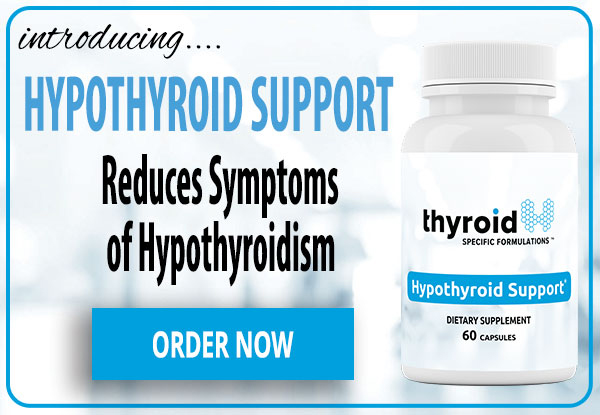What are the benefits of quitting caffeine? If you are thinking about quitting caffeine, or wondering “should I quit caffeine cold turkey?” – I’ve put together this guide to give you an idea of what to do, what to consider, and how it might help you.
- Have any questions?
- 480-767-9018
- support@in-goodhealth.com

Top 7 Nutrients for Hypothyroid Symptoms
March 20, 2023
Update – The Top 3 Myths of Adrenal Fatigue
March 20, 2023
Top 7 Nutrients for Hypothyroid Symptoms
March 20, 2023
Update – The Top 3 Myths of Adrenal Fatigue
March 20, 2023Recommended Product: Hypothyroid Support is specifically designed for: Patients on thyroid medication, patients not on thyroid medication, hypothyroid patients with or without thyroid antibodies, and helpful for those who no longer have a thyroid. Click Here
An Introduction to Quitting Caffeine
Caffeine is a beverage that most people, worldwide, consume on a daily basis. The majority of adults in the modern world consume some kind of caffeinated beverage every single day. And, for many people, they experience no problems with that at all.
But, there is a big range in how well people can clear caffeine. Part of that range is genetic, and it also manifests over time – whether by age or different health conditions. So, it is certainly worth thinking about whether caffeine is serving you right now.
How Does Caffeine Work?
Let’s orient today’s discussion about how caffeine works when it hits your system. For starters, we generate energy in our cells, and the main currency of energy is a thing called adenosine triphosphate (ATP for short).
When we use up our ATP, what’s left is called adenosine. This is the leftovers when we have no more energy left to spend – think of it like an empty cartridge.
When we have a lot of that floating around, we feel tired! Adenosine is not only not able to create new energy, but it is a symbol for our bodies to get some rest. We rely on it to know when to take a break and regain our energy.
What happens is that our cells, especially those in the brain, have special receptors that absorb adenosine and take it up. That is what triggers the switch to let us know when to rest and when to get some sleep.
Caffeine plugs up those receptors. It doesn’t make you any less tired, it makes you not know that you are tired. So, instead of giving you energy, what it is in fact doing is simply hiding your fatigue – masking your fatigue because the adenosine is still there.
If you use caffeine regularly, your body grows additional adenosine receptors.
On a day-to-day basis, you do not have more energy than anyone else. But, you have times in which your energy is very low. This is when you are undergoing what is known as caffeine withdrawal.
Understanding Caffeine Withdrawal
Caffeine takes away caffeine withdrawal, if you use it regularly. But, it doesn’t make you more energetic compared to if you weren’t a caffeine user – it just takes away those withdrawal symptoms.
Key Insight: You wake up groggy, and coffee makes you feel less groggy. And, it feels like you need it. But, while you may need that in the moment, your body overall does not – you are going through a withdrawal process.
Curiously, caffeine does happen to boost performance when someone is not a regular user of it. If you use it erratically, it has been shown to improve certain kinds of aerobic sports performance. It takes about 60-90 minutes to kick in and lasts 60-90 minutes total.
The same can be said for mental tasks. While it may not be ideal for things like creativity, it can be beneficial for quick recall and accomplish tasks you already understood. But, the key here is when you do not use it regularly.
But, that’s enough on how caffeine affects the body – let’s talk about some of the symptoms we might find when it comes to excessive caffeine intake…
Symptoms of Excessive Caffeine
The big symptoms that come from excessive caffeine intake relate back to this idea of stimulation. Here, we might think about things like:
Caffeine also causes the nerves in the body to fire differently. For that reason, we may see symptoms like:
- Irritable bowel syndrome (IBS)
- Gastro oesophageal reflux
These are things that, in massive doses, are almost guaranteed to happen. But, for many people, small daily doses do anything. For some, though, they can cause any of these symptoms – and that’s something we want to stop.
Testing for Excess Caffeine Intake
The benefits of quitting caffeine often come with understanding whether you are taking in too much – or, suffering from symptoms that feel like you are taking in too much. But, how do we test for excessive amounts of caffeine intake?
The best way to do this is to quit caffeine for a while and see if you feel better! There is no more accurate process than that, and on average it should take about three weeks of doing your own “clinical trial” to see how it affects you.
Key Insight: A litmus test I learned after many years is that, if the idea of quitting caffeine scares you, then you should definitely quit.
Take a minute, catch your breath, and consider the fact that you may be someone who has a life-changing experience over those three weeks.
The Top Benefits of Quitting Caffeine
I want to think about quitting in two ways here: quitting caffeine outright, or simply being strategic about how much caffeine you ingest. There’s a case for both of them.
I would recommend more of the second option. You want to think about when you take in caffeine, and what it feels like to be without caffeine.
Once you know that, you are then in a position to know how much you can tolerate before you lose all those benefits. This is going to vary between people.
The basic issue is that all the ways that chronic stressors are negative, it can be even worse for those who are already caffeine sensitive. Caffeine heightens your fight-or-flight response and leads to an overall imbalance that harms our health.
This can include things like:
- Depth of sleep
- Body weight
- Digestive health
- Mental focus
- Physical and mental energy
But, what are some alternatives to caffeine? If you want to quit caffeine, but also want to cover your bases, here are some ideas to keep in the back of your pocket.
If your goal is mental focus, a really neat thing to consider is lemon balm. You can most commonly find it as a tea – it tastes good, helps mental focus, and is not a stimulant.
Or, chamomile is a great one. It can be especially good later in the day, especially when it comes to cutting anxiety and helping with cognitive function.
Rooibos tea is also a good alternative. Consider it like black tea in terms of taste, but it has some nice antioxidants without any caffeine.
We also have lots of non-coffee-based coffees. Dandelion is a classic, but there are many that have made blends that are really tasty (Teeccino is one example of a brand).
Drinking Coffee Wisely
My main advice for you today is to think strategically about how you enjoy your caffeine. If you have it, times of day are relevant and first thing in the morning is not always the best. Give your body an hour or two before that first cup – it can make a huge difference.
Additionally, quantities and types matter. If you are working toward improving your sleep, lowering anxiety or benefiting your energy levels, really be strategic about your caffeine levels and how much you enjoy it.
And, if all else fails, consider a period of time where you go off caffeine to help reestablish a health baseline for your energy levels. Don’t forget, if that thought of that concerns you, then you may be a prime candidate to give it a test drive.

P.S. Whenever you are ready, here is how I can help you now:
- Schedule a Thyroid Second Opinion with me, Dr. C, Click Here for Details
- Need help to choose supplements? Click ‘Help Me Decide Here'
- Get my top books Here
Dr. Alan Glen Christianson (Dr. C) is a Naturopathic Endocrinologist and the author of The NY Times bestselling Hormone Healing Cookbook, The Metabolism Reset Diet, and The Thyroid Reset Diet.
Dr. C’s gift for figuring out what works has helped hundreds of thousands reverse thyroid disease, heal their adrenals, and lose weight naturally. Learn more about the surprising story that started his quest.







